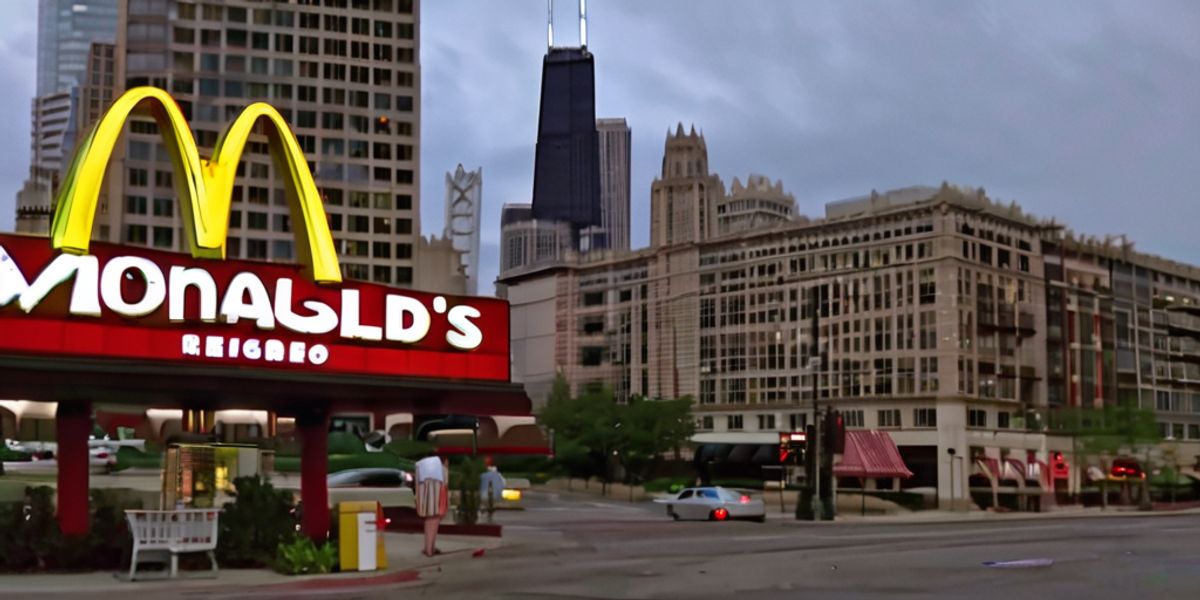The city of Chicago has a rich political history, shaped by its mayors and the policies they’ve implemented. From historical figures like Washington and Richard M. Daley to contemporary leaders like Lori Lightfoot and Brandon Johnson, the mayoral office has been instrumental in guiding the city’s development. This article delves into the evolution of mayoral leadership in Chicago, examining the challenges and controversies that have defined the tenure of Mayor Brandon Johnson, including the recent setback with the ‘Bring Chicago Home’ referendum.
Key Takeaways
- Chicago’s mayoral history is marked by significant figures who have influenced the city’s direction through distinct political and developmental approaches.
- Mayor Brandon Johnson’s administration faced a major setback with the rejection of the ‘Bring Chicago Home’ referendum, highlighting the challenges of navigating fiscal policies and public opinion.
- The future of Mayor Johnson’s leadership and Chicago’s progress hinges on strategic recovery from recent controversies and the successful implementation of progressive plans.
The Evolution of Leadership in Chicago

Historical Overview of Chicago Mayors
The mayoral history of Chicago is marked by a series of dynamic and influential leaders who have shaped the city’s trajectory. The evolution of mayoral leadership reflects the changing political, social, and economic landscapes of Chicago.
- Harold Washington’s election in 1983 signaled a transformative era in Chicago politics, emphasizing reform and inclusion.
- Eugene Sawyer, Richard M. Daley, Rahm Emanuel, and Lori Lightfoot each brought distinct perspectives and policies to the office, impacting the city’s development in unique ways.
- The relationship between the mayors and the city council has varied, with the council acting as either a supportive body or an independent force.
The tenure of each mayor is a testament to their individual administrative qualities and the accomplishments that have left lasting impressions on Chicago.
The following table outlines the years in office for some of Chicago’s most notable mayors:
| Mayor | Term Start | Term End |
|---|---|---|
| Harold Washington | 1983 | 1987 |
| Eugene Sawyer | 1987 | 1989 |
| Richard M. Daley | 1989 | 2011 |
| Rahm Emanuel | 2011 | 2019 |
| Lori Lightfoot | 2019 | Present |
This historical overview provides a glimpse into the diverse leadership styles and the challenges they faced, from economic crises to social upheavals, each leaving a unique stamp on the city’s rich tapestry.
The Political Landscape and City Council Dynamics
The political landscape of Chicago is a complex tapestry, woven with the threads of historical precedence and contemporary challenges. Mayor Johnson’s ability to navigate this terrain is crucial to his administration’s success. The City Council, a body with its own intricate dynamics, plays a pivotal role in the governance of Chicago. Its composition and the alliances within are key to passing legislation and implementing policies.
Patience is running short with platitudes and sloganeering from the Johnson administration. The City Council’s Progressive Caucus, a key base of Johnson’s political support, has expressed the need for detailed plans and a purposeful agenda.
The relationship between the mayor and the City Council can be characterized by the following points:
- The City Council can act as either a rubber stamp or an independent body, influencing the mayor’s ability to govern.
- The Progressive Caucus within the City Council has been a critical support base for Mayor Johnson.
- Trust and transparency are essential for cooperation between the mayor and the City Council members.
Mayor Johnson’s approach to the City Council will determine the trajectory of his policies and the future of Chicago’s development. It is a delicate balance of power and persuasion, where every vote counts and every alliance matters.
The Impact of Mayoral Policies on Chicago’s Development
The mayoral policies in Chicago have historically played a pivotal role in shaping the city’s development. Mayor Brandon Johnson’s plan to borrow $1.25 billion for economic development and affordable housing reflects a continuation of this trend, aiming to address the city’s pressing needs. The proposal has sparked a spectrum of reactions, from hopeful support to significant apprehension.
The strategic use of policies by Chicago’s mayors has often been a balancing act between innovation and fiscal responsibility. The decision to eliminate TIFs (Tax Increment Financing) is a prime example, intended to redirect investment towards long-neglected communities and support the funding of new bonds.
However, the complexities of urban development require more than just financial investment. The city council’s role as either a supportive entity or an independent force can greatly influence the success of such initiatives. As Mayor Johnson navigates the aftermath of the ‘Bring Chicago Home’ referendum, his administration’s ability to leverage council dynamics will be crucial.
The following table outlines key aspects of the proposed $1.25 billion bond issue:
| Aspect | Detail |
|---|---|
| Purpose | Economic Development & Affordable Housing |
| Proposed Amount | $1.25 Billion |
| Concerns | Fiscal Responsibility & Long-term Impact |
| Potential Benefits | Investment in Neglected Communities |
| Council Dynamics | Essential for Initiative Success |
As Mayor Johnson approaches the end of his first year in office, the pressure to secure a victory with this bond issue is mounting. The outcome will likely be a defining moment for his mayoralty and Chicago’s future.
Challenges and Controversies Facing Mayor Brandon Johnson

The ‘Bring Chicago Home’ Referendum Setback
In a surprising turn of events, the Bring Chicago Home referendum, a cornerstone of Mayor Brandon Johnson’s policy efforts, was voted down by the citizens of Chicago. The referendum, which proposed an increase in the real estate transfer tax on property sales exceeding $1 million, aimed to generate funds for services to support the homeless population.
Despite the mayor’s vigorous campaign, the referendum faced a decisive defeat with a 54% to 46% margin. This outcome not only reflects the challenges in implementing new fiscal policies but also underscores a significant lack of trust among voters. The table below illustrates the voting results by percentage:
| Against the Referendum | For the Referendum |
|---|---|
| 54% | 46% |
The setback has raised questions about the administration’s ability to effectively communicate and execute its vision for the city’s future.
The rejection also revealed a deeper skepticism within the community, particularly regarding the government’s capacity to manage and allocate funds appropriately. This sentiment was echoed by the council’s Progressive Caucus, acknowledging the electorate’s concerns over governmental trustworthiness. Moving forward, it is imperative for Mayor Johnson to rebuild this trust and demonstrate a clear, actionable plan for addressing the city’s pressing issues.
Navigating Fiscal Policies and Public Opinion
Mayor Brandon Johnson’s tenure has been marked by a delicate balancing act between fiscal responsibilities and maintaining public trust. The challenge of managing the city’s finances has been compounded by a demand for greater transparency and accountability. Amidst scrutiny, the administration’s approach to fiscal policies has sparked debates on the efficacy and openness of its financial decisions.
A shared commitment to address the city’s fiscal challenges can lead to a unified effort, but it requires clear communication of the financial strategies and their intended outcomes.
The following points highlight key concerns raised by the public and city council members:
- The need for detailed information on the allocation and use of funds, especially large bond sales or new tax initiatives.
- The importance of explaining the potential returns on investments to taxpayers.
- The expectation of openness regarding the spending on city projects, including those for migrant support.
To foster a stronger relationship with the public and City Council, the Johnson administration could consider the following steps:
- Provide comprehensive breakdowns of financial plans and expenditures.
- Engage in regular, transparent communication with the media and public forums.
- Work collaboratively with City Council to ensure a participatory budgeting process.
Strategic Moves for Political Recovery and Progress
In the wake of setbacks, Mayor Brandon Johnson’s administration is at a pivotal juncture. The key to political recovery may lie in embracing a more detailed and purposeful agenda. A shift towards transparency in policy-making and a willingness to collaborate across political lines could pave the way for regained trust and progress.
Patience is running short, and the demand for actionable plans is clear. The administration must pivot from slogans to substance, aligning with the expectations of both the electorate and the City Council.
To regain momentum, the following strategic moves are suggested:
- Establish clear, measurable goals for policy initiatives.
- Foster open dialogue with the Progressive Caucus and other key stakeholders.
- Prioritize fiscal responsibility while addressing social issues.
- Engage with non-progressive entities to find common ground for the city’s benefit.
These steps, if implemented with conviction and clarity, could not only stabilize Johnson’s mayoral tenure but also set a precedent for future leadership in Chicago.
Conclusion
In conclusion, the role of the mayor in Chicago is one of significant influence and responsibility, as evidenced by the actions and policies of past and present mayors. From Harold Washington to Lori Lightfoot, and now with Brandon Johnson at the helm, each mayor has faced unique challenges and opportunities to shape the city’s future. The recent rejection of Mayor Johnson’s ‘Bring Chicago Home’ referendum underscores the complexities of governing a diverse and dynamic city like Chicago. As Mayor Johnson navigates the aftermath of this setback and proposes new initiatives, the city’s progress and the effectiveness of its leadership remain under close scrutiny. The mayoral legacy in Chicago is not only about the victories but also about the resilience and strategic planning required to lead one of America’s most prominent cities.
Frequently Asked Questions
Who are some of the notable past mayors of Chicago?
Notable past mayors of Chicago include Harold Washington, Eugene Sawyer, Richard M. Daley, Rahm Emanuel, and Lori Lightfoot. Their leadership styles and policies have significantly shaped the city’s political and social landscape.
What was the ‘Bring Chicago Home’ referendum?
The ‘Bring Chicago Home’ referendum was a proposal by Mayor Brandon Johnson to raise the real estate transfer tax in order to fund services for the homeless. It was strategically placed on an uncompetitive primary ballot but was ultimately rejected by voters.
What are the next steps for Mayor Brandon Johnson after the referendum setback?
After the setback of the ‘Bring Chicago Home’ referendum, Mayor Brandon Johnson needs to reassess his fiscal policies and public opinion to regain political momentum. He is now proposing a bond issue and must navigate the political landscape to showcase leadership and progress.


